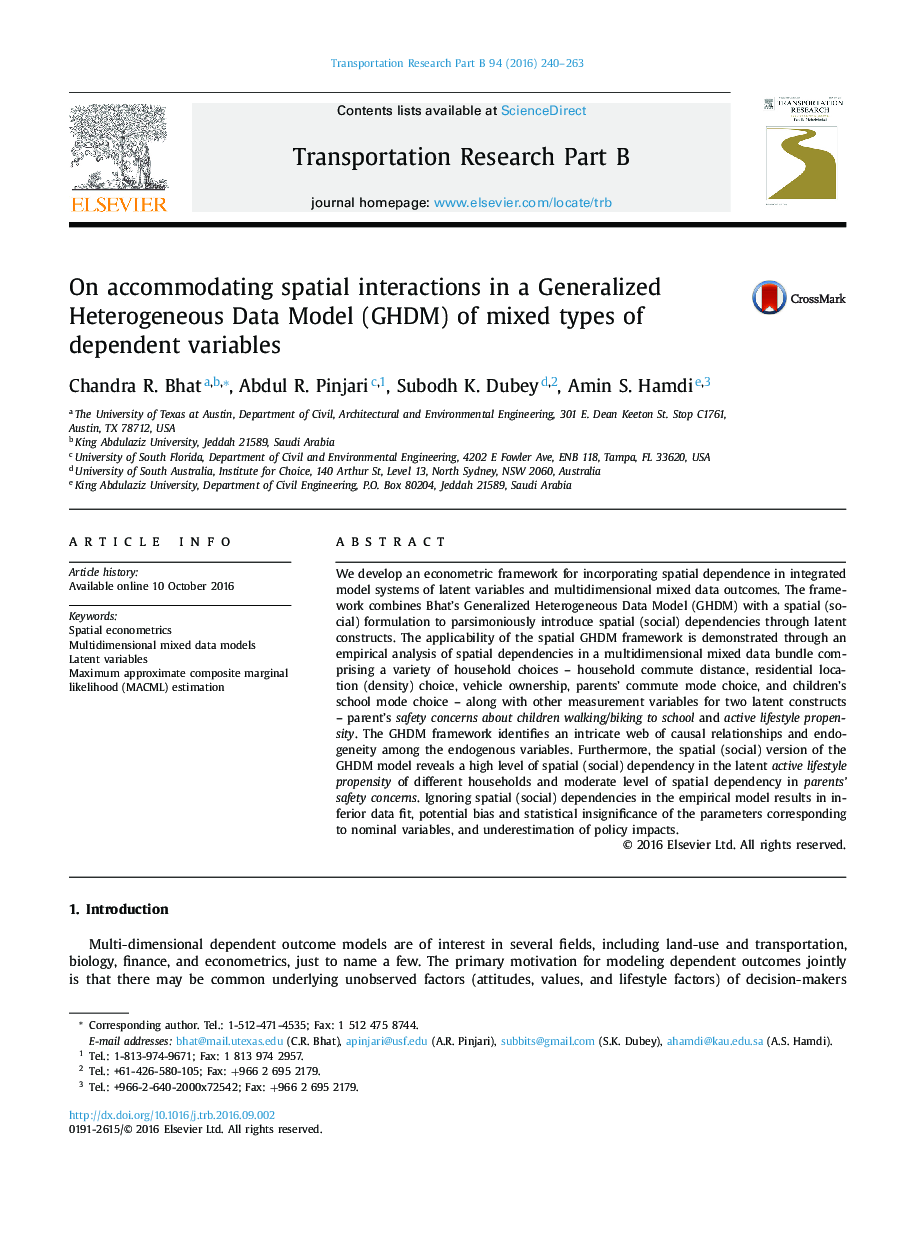| Article ID | Journal | Published Year | Pages | File Type |
|---|---|---|---|---|
| 5127154 | Transportation Research Part B: Methodological | 2016 | 24 Pages |
â¢Developed a method to accommodate spatial dependence in multidimensional models.â¢A simple estimation approach is proposed.â¢The model is applied to analyze residential, auto, and travel mode choices.
We develop an econometric framework for incorporating spatial dependence in integrated model systems of latent variables and multidimensional mixed data outcomes. The framework combines Bhat's Generalized Heterogeneous Data Model (GHDM) with a spatial (social) formulation to parsimoniously introduce spatial (social) dependencies through latent constructs. The applicability of the spatial GHDM framework is demonstrated through an empirical analysis of spatial dependencies in a multidimensional mixed data bundle comprising a variety of household choices - household commute distance, residential location (density) choice, vehicle ownership, parents' commute mode choice, and children's school mode choice - along with other measurement variables for two latent constructs - parent's safety concerns about children walking/biking to school and active lifestyle propensity. The GHDM framework identifies an intricate web of causal relationships and endogeneity among the endogenous variables. Furthermore, the spatial (social) version of the GHDM model reveals a high level of spatial (social) dependency in the latent active lifestyle propensity of different households and moderate level of spatial dependency in parents' safety concerns. Ignoring spatial (social) dependencies in the empirical model results in inferior data fit, potential bias and statistical insignificance of the parameters corresponding to nominal variables, and underestimation of policy impacts.
